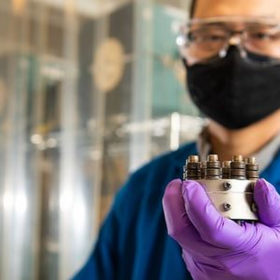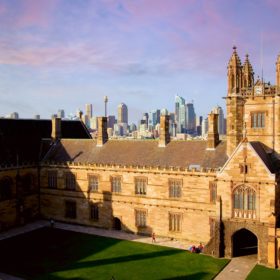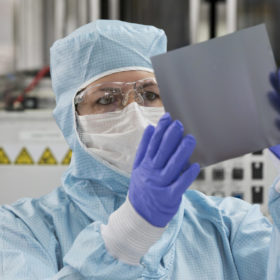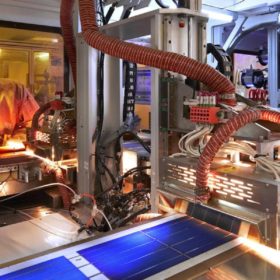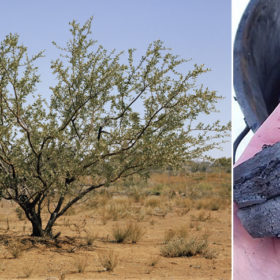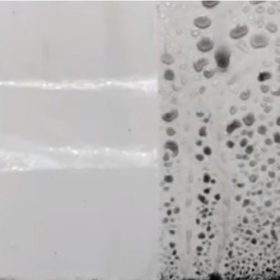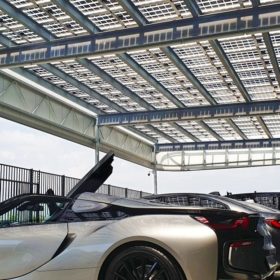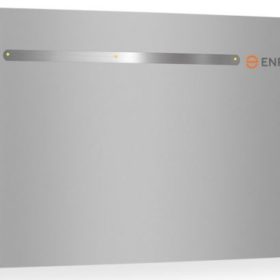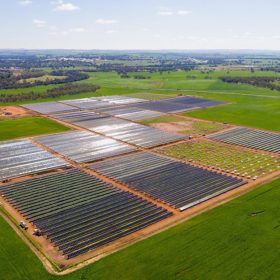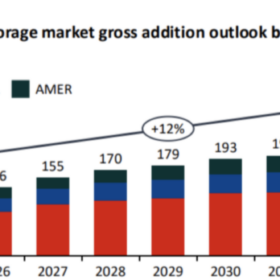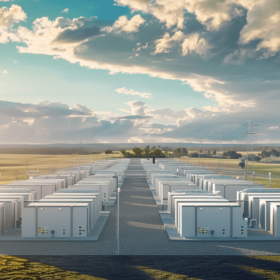Aluminium-nickel molten salt battery for seasonal renewables storage
US scientists have developed a battery that can retain 92% of its initial capacity over periods of 12 weeks, with a theoretical energy density of 260W/hour per kg. It was built with an aluminium anode and a nickel cathode, immersed in molten-salt electrolyte.
Australia’s first university set to match 100% of its energy with renewables
The University of Sydney, Australia’s oldest, has signed a contract with Snowy Hydro and its subsidiary Red Energy to match “100%” of its energy consumption with renewables, in particular solar.
New technologies, new opportunities
UK-based analyst Exawatt and Germany’s Nexwafe published a white paper this week that takes a close look at the current state of PV manufacturing worldwide, and how Nexwafe’s innovative wafer production tech might fit into it. They said that if the potential of its Epiwafer can be realised, the PV industry may yet see “another revolution in wafer manufacturing.”
Solar the energy workhorse in latest gloomy IPCC verdict
Photovoltaics can wipe out 4.25 billion tonnes of carbon emissions every year this decade, according to the UN Intergovernmental Panel on Climate Change. Even so, the actions announced so far remain way short of what is needed, with capital flows to fossil fuels still greater than the cash directed toward combating climate change.
Trina Solar achieves 25.5% efficiency in n-type TOPCon solar cell
The result was confirmed by the National Institute of Metrology of China. It was achieved with a cell size of 210x210mm.
Queensland company promises to turn noxious weeds into ‘green coal’
Queensland company Green Day Energy has begun trialling its proposition to convert the invasive weeds species, prickly acacia, to biomass for the purpose of generating electricity, biochar and hydrogen.
French consortium develops self-cleaning solar module coating
French chemical company Axcentive and solar module manufacturer Photowatt have developed a PV panel coating based on photoactive nanotechnology. The coating relies on a super-hydrophilic surface that makes the water spread out on the module surface immediately, thus avoiding light scattering effects upon rain.
Bifacial solar modules with 30% transparency rate for agrivoltaics, carports launched
Slovenian solar manufacturer Bisol is offering its new product with outputs of 260 and 300W, respectively. Front efficiencies ranges from 13.5% to 14.0% and the temperature coefficient is -0.35% per degree Celsius.
Enphase launches pilot to pay US solar customers for leasing batteries, sharing energy
Homeowners who participate in a new Enphase pilot project will connect their home batteries to the US grid, sharing energy through Green Mountain Power’s distribution system in exchange for financial incentives.
Infinite Blue Energy purchases WA solar farm to realise green hydrogen project by 2023
Western Australian company Infinite Blue Energy has today announced it will purchase Northam solar farm, which sits an hour east of Perth. The acquisition will accelerate the company’s green hydrogen project as it aims to produce up to 4.4 tonnes of renewable hydrogen daily from next year.
